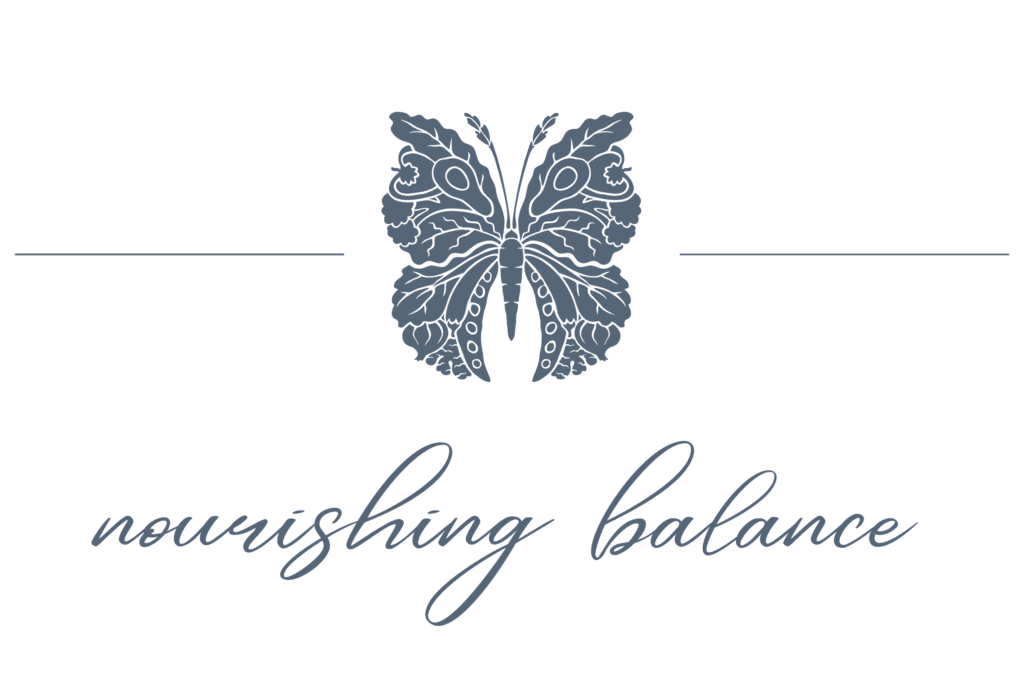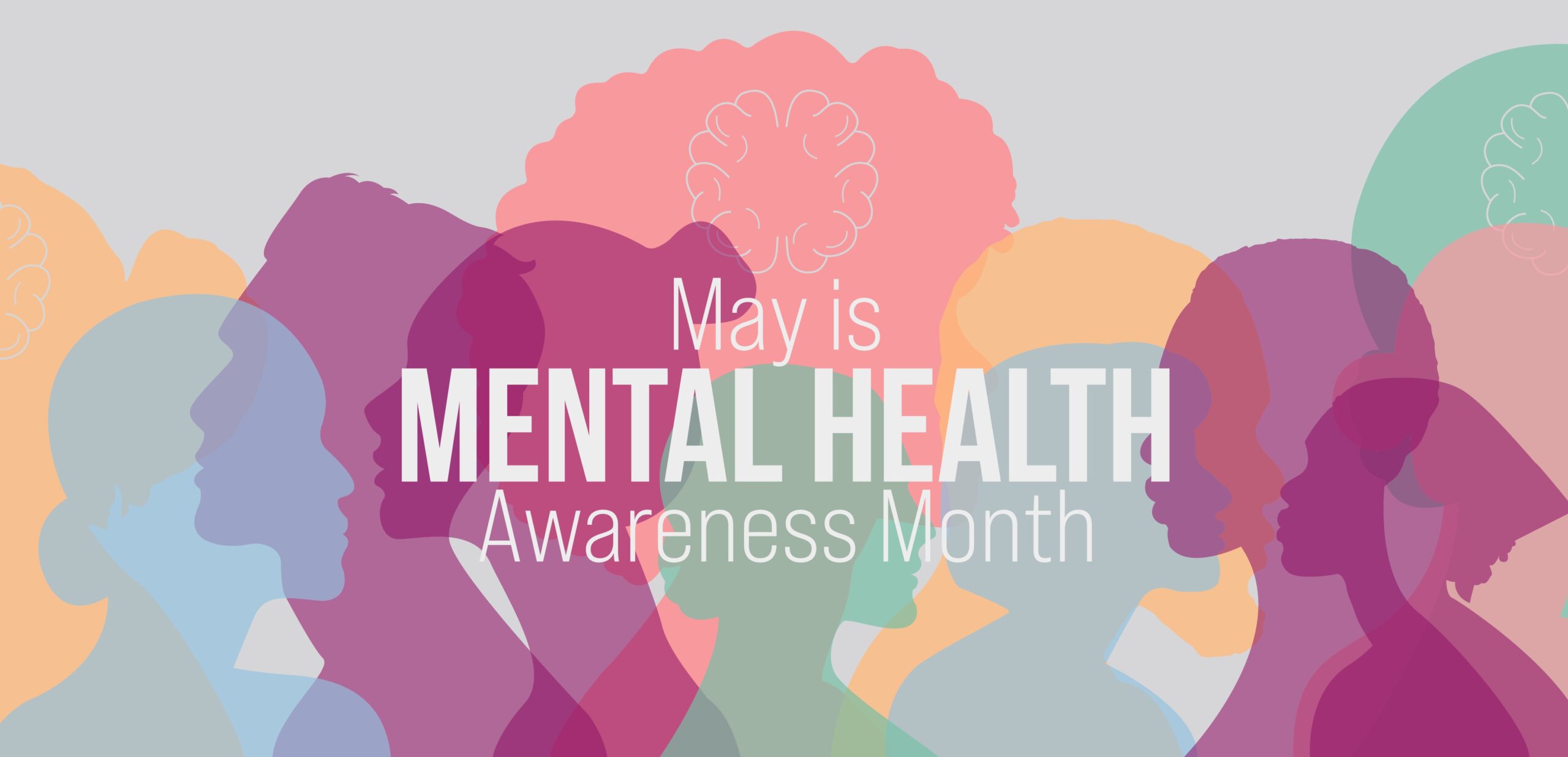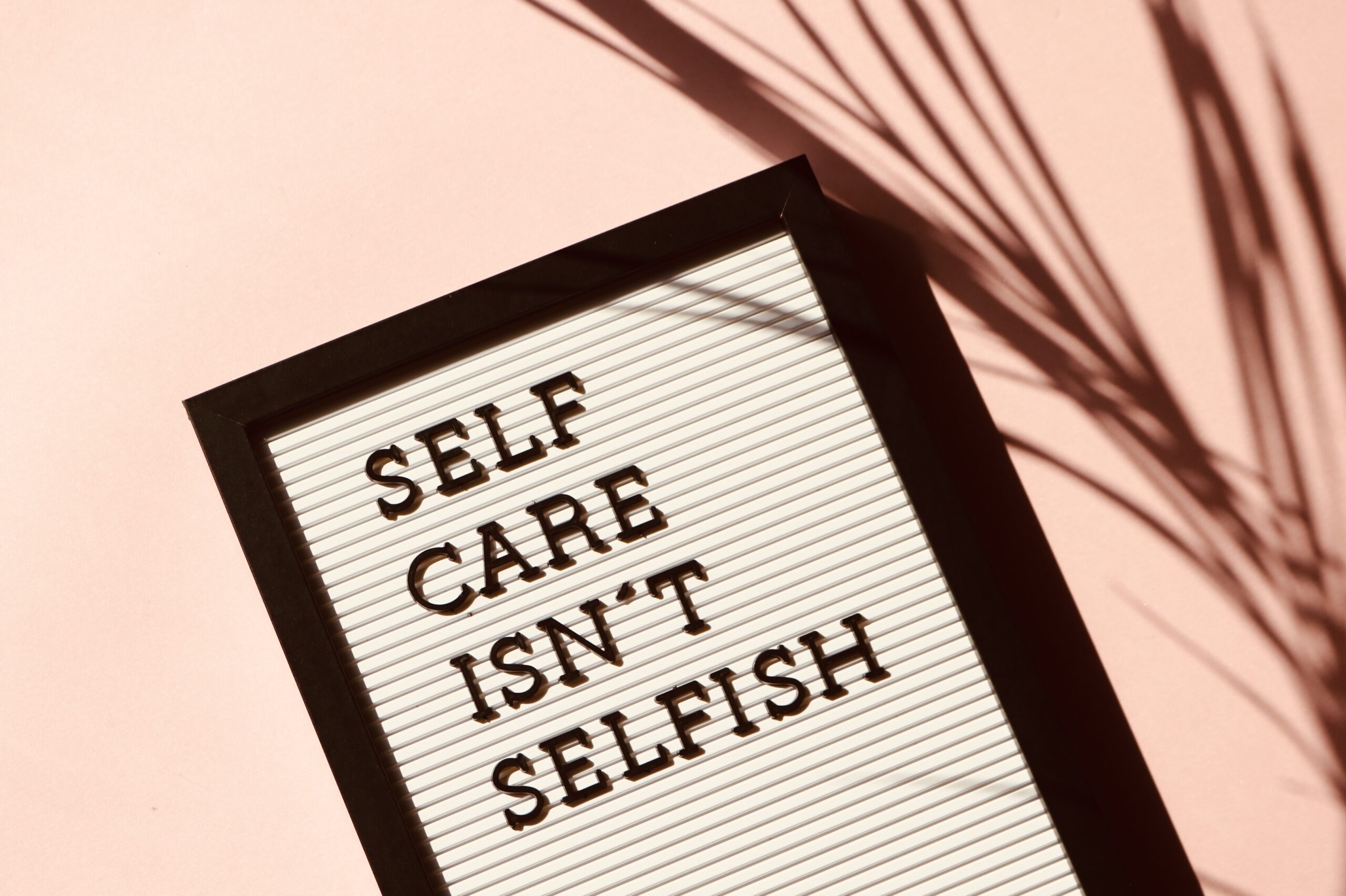 In a world where wellness and self-care have become increasingly important, it’s crucial for men to prioritize their health and well-being. While a balanced diet and regular exercise form the foundation of a healthy lifestyle, certain nutritional gaps may require additional support. That’s where supplements come into play. However, it’s important to note that supplements should never replace a well-rounded diet or professional medical advice. Instead, think of them as valuable additions to your existing health regimen.
In a world where wellness and self-care have become increasingly important, it’s crucial for men to prioritize their health and well-being. While a balanced diet and regular exercise form the foundation of a healthy lifestyle, certain nutritional gaps may require additional support. That’s where supplements come into play. However, it’s important to note that supplements should never replace a well-rounded diet or professional medical advice. Instead, think of them as valuable additions to your existing health regimen.
Throughout this blog, we’ll delve into a variety of supplements that address common health concerns faced by men. From essential vitamins and minerals to specialized nutrients, we’ll explore how each supplement contributes to specific aspects of your well-being.
You may be wondering: Why should I take supplements when I already eat a balanced diet? Well, it’s true that a healthy diet is essential, but modern lifestyles often make it challenging to obtain all the necessary nutrients from food alone. Environmental factors and stress could impact our nutritional needs. Supplements bridge these gaps, providing a convenient and effective way to support your body’s functions and maintain optimal health.
Disclaimer: Before making any changes to your diet or starting a new supplement regimen, it’s crucial to consult with a healthcare professional to ensure it aligns with your individual health needs and any existing medical conditions. We suggest you consult with the Nourishing Balance team of dietitians if you have any additional questions! (more on this at the end)
Top supplements to TAKE as a man:
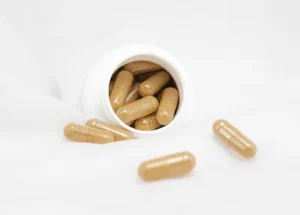
Zinc is a mineral that plays various essential roles in the body. For males in particular, zinc is associated with the production and regulation of testosterone, the primary male sex hormone (1). Zinc supports the development and maintenance of the male reproductive system, including the production of healthy sperm (1). Men with low zinc levels may be at risk of not producing enough testosterone which is essential for male reproductive growth and development (1). So, gentlemen, it’s time to give zinc the recognition it deserves! This mighty mineral may hold the key to maintaining your peak performance!
Magnesium, an essential mineral, is involved in numerous biochemical reactions in the body. It plays a significant role in testosterone synthesis which is the primary male sex hormone responsible for muscle growth, bone density, libido, and overall vitality (2). Magnesium deficiency has been associated with reduced testosterone levels, which can lead to symptoms such as decreased muscle mass, diminished energy levels, impaired exercise performance, and even sexual dysfunction (2). If you feel that you are not obtaining enough magnesium through your diet, supplementation may benefit you for optimizing your physical function and overall well-being. The interplay between magnesium and testosterone plays a significant role in modulating physical function in men (2).
Psyllium fiber is a great supplement for men to incorporate into their daily routine due to its numerous health benefits. It can be added to foods such as yogurt, smoothies, cereals, baked goods, or even water. Primarily known for promoting gut health and regularity, psyllium fiber acts as a natural laxative, aiding in the movement of waste through the digestive system (3). This not only prevents constipation but also helps maintain a healthy gut microbiome, which plays a crucial role in your overall well-being (4). Additionally, psyllium fiber has been linked to a reduction in the risk of cardiovascular disease (3). Its soluble fiber content helps to lower cholesterol levels thereby improving heart health (3). By regulating cholesterol, psyllium fiber supports healthy blood pressure levels and reduces the risk of plaque buildup in arteries (3). Furthermore, studies have shown that incorporating psyllium fiber into your diet can reduce the risk of type 2 diabetes (5). This suggests that increasing fiber intake can help regulate blood sugar levels and improve overall glucose management (5).
FENUGREEK & ASHWAGANDHA
Fenugreek and Ashwagandha are herbs that potentially have boosting effects in testosterone in men. We say potentially because studies are still being conducted to understand these medicinal herbs completely. Fenugreek is an herb with culinary and medicinal uses, known for its aromatic seeds and nutty flavor (6). Studies have shown that fenugreek extract supplementation had a significant positive effect on testosterone levels in males (6). The analysis from the study revealed that participants who received fenugreek extract experienced a notable increase in testosterone levels compared to those who had not (6).
Ashwagandha is a powerful medicinal herb that has multiple benefits but notably also increases testosterone health. Studies have also shown that ashwagandha was found to significantly increase testosterone levels (7). Participants who received ashwagandha showed enhanced muscle strength and size compared to those who had not, suggesting potential anabolic properties of ashwagandha (7).
Often referred to as the “sunshine vitamin,” vitamin D is not just important for bone health but also has a wide range of benefits that can positively impact men’s well-being. While sunlight is an excellent natural source of vitamin D, supplementation can be a convenient and reliable way to ensure adequate levels. Vitamin D aids in the absorption of calcium, supporting bone density and strength, and reducing the risk of osteoporosis and fractures (8). Additionally, vitamin D is associated with enhanced muscle function and strength, allowing men to maintain an active lifestyle and reduce the risk of age-related muscle loss (8). A robust immune system is crucial for men’s health, enabling the body to fight off infections and illnesses. Vitamin D plays a significant role in supporting immune function, helping to regulate immune responses and reduce the risk of respiratory infections, such as the common cold or flu (9).
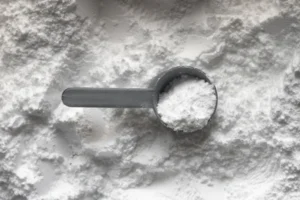
When it comes to optimizing your fitness journey, men often turn to supplements that can enhance muscle growth, recovery, and overall performance. One such powerhouse in the realm of supplements is whey protein powder. If you’re aiming to build muscle and increase strength, whey protein powder could be the secret weapon. Packed with essential amino acids, whey protein provides the necessary building blocks to promote muscle growth and repair (10). Its rapid digestion and absorption rate make it an ideal choice for post-workout consumption, as it rapidly delivers amino acids to your muscles, supporting muscle protein synthesis and helping you achieve those gains you’ve been working hard for (10).
Supplements to NOT take as a man:
IRON
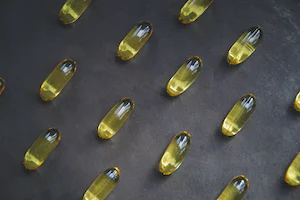
While iron is an essential mineral for overall health, it is crucial for men to understand the potential risks associated with excessive iron supplementation. It is important to note that most men already consume enough iron. Iron supplements are only recommended for those that are iron deficient. A study suggests that iron overload can have detrimental effects on male reproductive function (11). It mentions that iron is essential for spermatogenesis and sperm metabolism, but excessive iron levels can increase oxidative damage to sperm and reduce sperm count, motility, and normal morphology (11). The study highlights the importance of monitoring iron status in infertile men and those working in special environments (such as hypoxia or high temperatures), and recommends caution with iron supplementation for infertile men (11). Iron is a very important mineral, but it is only recommended to take when needed.
VITAMIN C
Vitamin C is a vital nutrient that is notably known to support one’s immune system and enhance the absorption of iron. Because of its reputation for its association in boosting immunity, men often are led to believe that it alone can boost their immune system. However, it is essential to understand that achieving optimal immunity cannot come from one source alone. There are multiple factors that can help improve immunity and supplementing with vitamin C alone won’t do the trick. Looking at it with a bigger picture in mind, you need to consider lifestyle habits, your environment and overall nutrition, which are all factors that could affect immunity. In regards to vitamin C and iron absorption, it helps boost iron absorption in the body. We previously stated that men should not consume an excess amount of iron because it could negatively affect their reproductive health (11). Taking vitamin C and iron at the same time could be potentially very dangerous for men. It is best to consult with a medical professional or dietitian before proceeding to take any new supplements.
PROBIOTICS
Probiotics have gained significant popularity in recent years for their potential health benefits, particularly in supporting gut health and digestion. However, their effectiveness and impact on individuals can vary. While research suggests that probiotics can provide numerous advantages, it is important to note that not all strains or formulations may yield the desired results (12). Probiotics may not always deliver the expected benefits for everyone (12). The effectiveness of probiotics depends on various factors such as the specific strain, dosage, individual health conditions, and the purpose for which they are being used (12). Certain strains have been studied extensively and demonstrated positive effects, while others may have limited evidence supporting their efficacy (12). It is always best to speak with your dietitian or a health professional before deciding if and what kind of probiotic you need.
Next Steps:
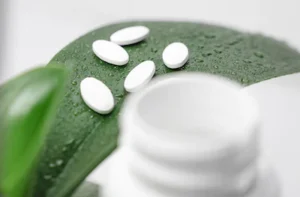
Now that you have a comprehensive understanding of these supplements, it’s time to take the next steps. Remember, before making any changes to your diet or starting a new supplement regimen, consult with a healthcare professional or a registered dietitian to ensure it aligns with your individual health needs and any existing medical conditions.
How to do this?
Look no further, our team is here to support you. Book in with our nurse practitioner Julia here at Nourishing Balance and she will assess if you are deficient in any nutrients. Also, book a free discovery call with Bhavin, our registered dietitian who specializes in all things men’s health.
Conclusion:
In conclusion, prioritizing men’s health and well-being is crucial in today’s wellness-focused world. While supplements can be valuable additions to a healthy lifestyle, they should never replace a balanced diet or professional medical advice. The top recommended supplements for men’s health, such as zinc, magnesium, psyllium fiber, fenugreek, ashwagandha, vitamin D, and whey protein powders, address specific health concerns and contribute to overall well-being. However, it’s equally important to understand the supplements that are not recommended, such as excessive iron and vitamin C supplementation, as well as the varying effectiveness of probiotics. Before incorporating any new supplements into your regimen, consult with a healthcare professional or registered dietitian to ensure they align with your individual health needs. At Nourishing Balance, our team of experts is here to support you on your journey towards optimal men’s health.
Sources:
- Prasad, A. S., Mantzoros, C. S., Beck, F. W., Hess, J. W., & Brewer, G. J. (1996). Zinc status and serum testosterone levels of healthy adults. https://doi.org/10.1016/s0899-9007(96)80058-x
- Maggio, M., De Vita, F., Lauretani, F., Nouvenne, A., Meschi, T., Ticinesi, A., Dominguez, L. J., Barbagallo, M., Dall’aglio, E., & Ceda, G. P. (2014). The Interplay between Magnesium and Testosterone in Modulating Physical Function in Men. International journal of endocrinology. https://doi.org/10.1155/2014/525249
- Anderson, J.W., Allgood, L.D., Lawrence, A., Altringer, L.A., Jerdack, G.R., Hengehold, D.A., Morel, J.G. (2000). Cholesterol-lowering effects of psyllium intake adjunctive to diet therapy in men and women with hypercholesterolemia: meta-analysis of 8 controlled trials. The American Journal of Clinical Nutrition. https://doi.org/10.1093/ajcn/71.2.472
- Bliss, D. Z., Savik, K., Jung, H. J., Whitebird, R., Lowry, A., & Sheng, X. (2014). Dietary fiber supplementation for fecal incontinence: a randomized clinical trial. Research in nursing & health. https://doi.org/10.1002/nur.21616
- Chandalia, M., Garg, A., Lutjohann, D., von Bergmann, K., Grundy, S. M., & Brinkley, L. J. (2000). Beneficial effects of high dietary fiber intake in patients with type 2 diabetes mellitus. The New England Journal of medicine. https://doi.org/10.1056/NEJM200005113421903
- Mansoori, A., Hosseini, S., Zilaee, M., Hormoznejad, R., & Fathi, M. (2020). Effect of fenugreek extract supplement on testosterone levels in male: A meta-analysis of clinical trials. https://doi.org/10.1002/ptr.6627
- Lopresti, A. L., Drummond, P. D., & Smith, S. J. (2019). A Randomized, Double-Blind, Placebo-Controlled, Crossover Study Examining the Hormonal and Vitality Effects of Ashwagandha (Withania somnifera) in Aging, Overweight Males. American journal of men’s health. https://doi.org/10.1177/1557988319835985
- Bouillon, R., Manousaki, D., Rosen, C. et al. (2022). The health effects of vitamin D supplementation: evidence from human studies. https://doi.org/10.1038/s41574-021-00593-z
- Aranow C. (2011). Vitamin D and the immune system. Journal of investigative medicine : the official publication of the American Federation for Clinical Research. https://doi.org/10.2310/JIM.0b013e31821b8755
- https://www.healthline.com/nutrition/10-health-benefits-of-whey-protein
- Li, X., Duan, X., Tan, D., Zhang, B., Xu, A., Qiu, N., Chen, Z. (2023). Iron deficiency and overload in men and woman of reproductive age, and pregnant women. Reproductive Toxicology. https://doi.org/10.1016/j.reprotox.2023.108381.
- Lerner, A., Shoenfeld, Y., & Matthias, T. (2019). Probiotics: If It Does Not Help It Does Not Do Any Harm. Really? https://doi.org/10.3390/microorganisms7040104
